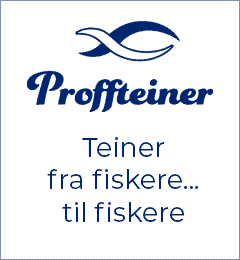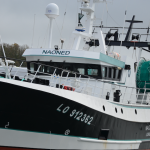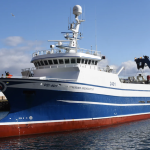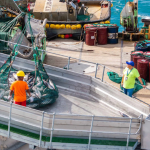A $US 57,500 prize fund is on offer for the best new fishing gears designed to reduce bycatch in the fourth International Smart Gear Competition, launched today by WWF.
Over 4 million sharks, billfish, sea turtles, marine mammals and seabirds are caught each year on longlines in the Pacific Ocean alone as unwanted bycatch, with many being discarded dead or dying back into the sea. Globally, millions of tons of untargeted fish that are caught in nets or become hooked on longlines are also wasted each year.
“Bycatch is one of the greatest and most pervasive threats to life in the oceans,” said Bill Fox, vice president of fisheries for WWF-US.
The Smart Gear Competition seeks real-world fishing solutions that allow fishermen to fish ‘smarter’— better targeting their intended catch while safeguarding birds, dolphins, sea turtles and other marine life from being unintentionally caught.
Last year’s grand prize winners were a team of U.S. inventors from Rhode Island, who designed fishing gear to capture haddock while reducing the accidental netting of other marine species, such as North Atlantic cod. The device works by taking advantage of the haddock’s tendency to swim upward when encountering the net, while other fish, which have a tendency to swim downwards, are directed through an escape hatch. The design is now being used in commercial fisheries off the north-eastern coast of the United States and is being tested for use in the United Kingdom and other European fisheries.
“The Smart Gear Competition has proven effective in galvanizing creative thinkers from around the world to come up with innovative devices to enable fishermen to fish more sustainably”, Fox said.
The competition is open to eligible entrants from any profession, including fishermen, professional gear manufacturers, teachers, students, engineers, scientists and backyard inventors. The winner of the Smart Gear Competition will be decided by a diverse set of judges, including fishermen, researchers, engineers and fisheries managers from all over the world.
As well as the $30,000 grand prize there will also be two $10,000 runner-up prizes and a special $7,500 East-African Marine Eco-Regional Prize for entries specifically addressing serious bycatch issues in coastal East Africa.
This is the second year WWF has offered a special regional prize to encourage inventions that address issues in areas of critical concern. Entries will be judged on innovation, practicality, cost-effectiveness, their ability to reduce bycatch of any species and the overall contribution the invention makes to conservation.
“Like any entrepreneur in the 21st century, progressive fishermen around the world also want to be more efficient, more innovative and more sustainable.” said Miguel Jorge, Director of the WWF International Marine Programme. “Smart Gear is one of our most powerful tools to help fishermen achieve these aspirations.”
The Curtis and Edith Munson Foundation, the SeaWorld & Busch Gardens Conservation Fund and the Lemelson Foundation supported this year’s competition























